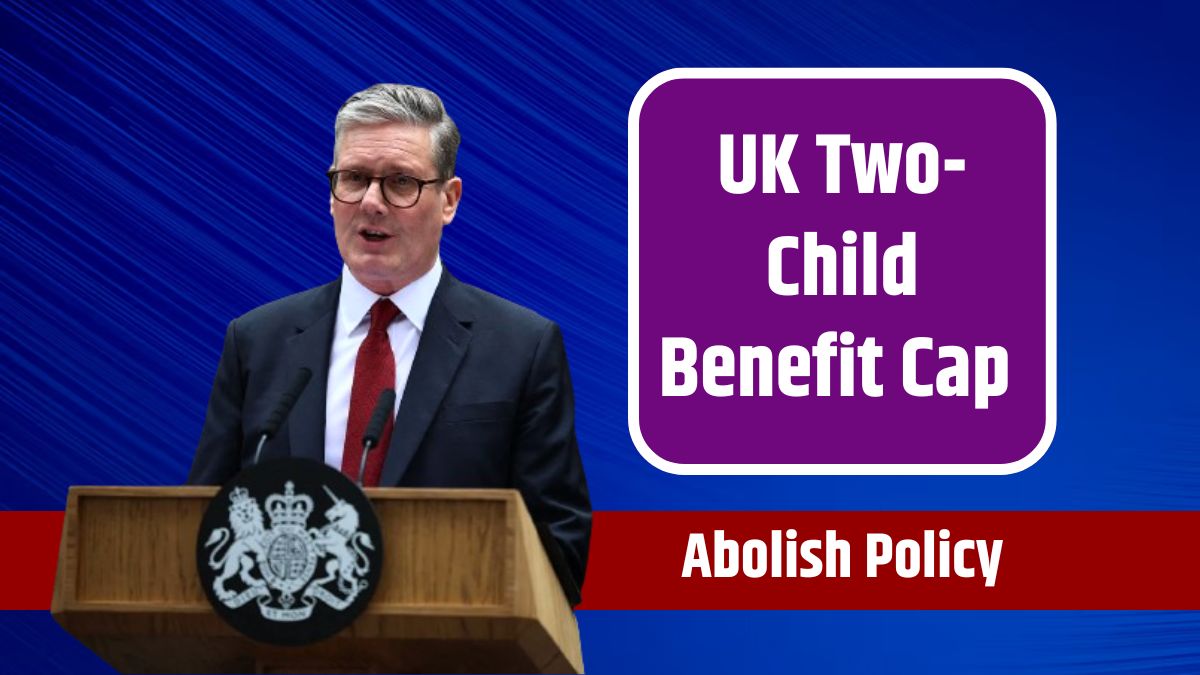The UK’s two-child benefit cap, implemented in April 2017, is a policy that restricts financial support to only the first two children in a family. Families that receive means-tested benefits like Universal Credit (UC) or Child Tax Credit (CTC) are affected, regardless of their employment status.
The policy has become a major topic of debate in recent years, with critics arguing it exacerbates child poverty amid rising costs of living. Recent political developments have amplified the discussion around repealing this cap, highlighting its social and economic impacts on families across the UK.
Overview
The two-child benefit cap limits government aid for families to support only the first two children, restricting the total benefits families can claim for their children. This rule applies to any additional children born after April 2017, meaning families with more than two children born after that date cannot claim extra support. This cap affects lower-income families especially, as the support families receive is based on household income and applies to those who qualify for means-tested benefits.
Push for Policy Change
The current economic situation, with inflation and living expenses rising, has made this cap increasingly challenging for larger families. It is estimated that nearly four million children in the UK are living in poverty, a figure that has increased by about 700,000 since 2010. Critics argue that policies like the two-child cap are partly to blame, as they limit financial resources for families, pushing more children into poverty. Many of those impacted by the cap are larger families or single-parent households that rely on government support to meet basic needs.
In response, several political parties, led by the Scottish National Party (SNP), have taken steps to challenge the policy. The SNP recently proposed an amendment to the King’s Speech, aiming to eliminate the cap. They argue that the policy unfairly targets children based on birth order, denying them support simply for being the third child or beyond.
Political Discussions
UK opposition parties, including Labour, have strengthened their calls for the government to lift the cap. Labour leader Keir Starmer recently appointed Liz Kendall, Secretary of State for Work and Pensions, and Bridget Phillipson, Secretary of State for Education, to lead a task force dedicated to addressing child poverty. This task force, with help from experts within and outside the government, will examine the cap’s impacts and work toward solutions that can help reduce child poverty.
The task force’s priorities include factors such as family income, housing, job stability, healthcare access, and education quality—critical areas influencing children’s overall well-being. The task force leaders aim to assess and mitigate the root causes of child poverty, working to create a support structure that gives all children a fair start.
Urgency for Reform
Charitable organizations and child welfare advocates argue that the quickest path to alleviating financial pressures on struggling families is to scrap the two-child cap entirely. By removing the cap, the government could offer immediate financial relief to larger families, ensuring they receive the support needed to cover living expenses and children’s basic needs. Advocates highlight that financial constraints under the current policy force families to make difficult choices about necessities, affecting both parents’ and children’s well-being.
On the other hand, proponents of the cap argue it promotes financial accountability and discourages long-term dependency on government benefits. They assert that the cap was introduced to encourage family planning and manage taxpayer resources. However, those in favor of repealing the cap argue that the policy fails to account for rising living costs, which make it difficult for families to be self-sufficient even with limited financial support.
Future Possibilities
The new task force’s objective is to develop data-driven strategies and actionable solutions that can address the issue of child poverty in the UK. With Kendall and Phillipson at the helm, the task force is expected to provide recommendations based on community feedback, research, and expert opinions. Many analysts predict that repealing the cap could bring immediate benefits to over half a million children by enhancing household support and helping families meet their basic needs.
A repeal of the cap would represent a significant shift in the government’s approach to social support and child welfare. As political parties and charities continue to call for action, families across the country await potential changes with hope, hoping to see the government take meaningful steps toward improving their financial and social stability.
FAQs
What is the two-child benefit cap?
The UK two-child benefit cap limits financial support to the first two children in a family under means-tested benefits like Universal Credit.
Who is affected by the two-child benefit cap?
Families with more than two children born after April 2017 are affected, limiting support for additional children.
Why is there a push to remove the two-child cap?
Critics say the cap pushes larger families into poverty by limiting access to vital financial aid.
What are recent developments regarding the cap?
Labour leaders have formed a task force to review child poverty and are considering scrapping the cap.
How might scrapping the cap affect families?
Removing the cap could lift over half a million children out of poverty by increasing support for larger families.

